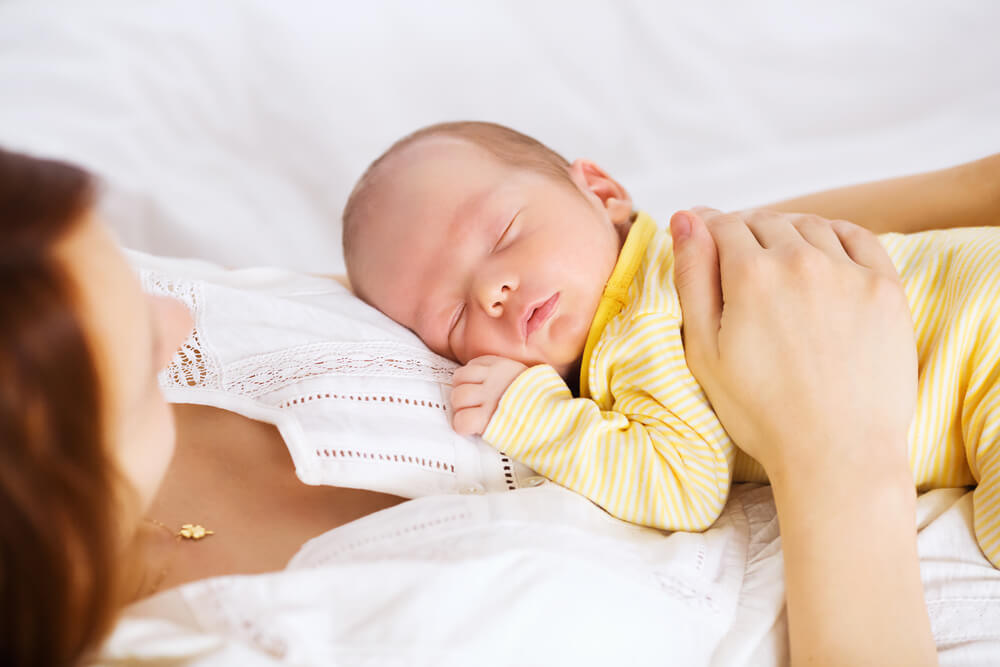Women spend the majority of their pregnancy planning the baby’s arrival. All new mothers want to prepare everything to the best of their abilities for the newborn, so picking the essentials and choosing a nursery, clothes, name, etc., are at the top of their priority list. After the nine-month period passes and the baby arrives, then it is time to take care of the child, but the main question is whether the new mothers know what to do when it comes to their own postpartum recovery process.
Places like Women’s Care of Bradenton are specialized medical facilities that offer support, guidance, and help to new mothers during their vaginal delivery recovery. All recovery processes are hard, but in today’s article, we will focus mostly on the issues affecting the women’s vagina after birth and the postpartum healing process.
Frankly, when the patient goes through vaginal delivery, their whole vagina, rectum, and perineum suffer severe tears and damage. After giving birth in this way, women need serious postpartum care, and today we will bring you some of the most common pieces of advice which helped women worldwide successfully recover after giving birth.
What to Expect During Postpartum Recovery Period

As mentioned earlier, new mothers go through different changes when it comes to their bodies and their healing process after delivery. Due to this, we have decided to compile a pretty extensive list of issues you might face during postpartum healing, with some practical pieces of advice which might help you during your postpartum care period.
When it comes to the time it takes for the body to heal, doctors usually speculate that it will take from six to eight weeks after delivery, but it all depends on the overall health of the patient, their daily habits, life quality, etc. Some issues can linger longer than that, so be patient with yourself. It is essential to take time during this process and to not stress yourself out even more. Your body needs time to heal, so take it easy and be patient.
Each person is different, and every postpartum recovery process looks different. This also depends on the severity of the delivery, whether it went by smoothly or the patient suffered for hours trying to deliver the baby. Also, bigger babies cause larger tears of the vaginal tissue, but whatever the case may be, remember that no vaginal delivery recovery process is simple and easy.
Vagina After Birth
The organ which suffered the most damage during a vaginal delivery is the vagina itself, as well as the rectum and the perineum. This said, here are some of the most common consequences one can suffer after giving birth vaginally:
- Vaginal soreness and itching occur when you experience a vaginal tear or the doctor makes an incision, so the wound needs time to heal. The bigger the tear, the longer it takes to heal, so make sure you are patient with this, and you take all the necessary steps toward successful recovery.
The general advice experts give to ease the discomfort and pain is to sit on a pillow, cool the area using an ice pack or a chilled pad, pour warm water on the wound and where the urine passes, sit in a warm bath, to take painkillers if needed, to take numbing creams or spray, and to speak to your doctor often to share with them any potential changes.
If the pain starts to increase, an infection might develop, so make sure you call your doctor as soon as possible.
- Vaginal bleeding and vaginal discharge are very common occurrences after vaginal birth, and they can happen up to six weeks after delivery. Experts say that it is quite typical to experience bleeding because the body is trying to get rid of the leftover blood in the system and the tissue within the uterus.
When it comes to vaginal discharge, most often, the body sheds some mucous lined within the uterus. The discharge can be present for several weeks, and it can be red, white, yellow, brown, or green and have an odor, which should not be faulty. As the weeks of your postpartum care go by, the discharge gets lighter and waterier.
Other Issues During Postpartum Care

Apart from vaginal issues, some other segments of life might be disturbed for new mothers. These issues can include:
- Contractions are very common and might occur occasionally. They most often happen during the first few days after the delivery, but they might help with the prevention of extensive bleeding after childbirth. Some women take painkillers in order to ease the severity of the contractions.
- Incontinence is also pretty common due to the injuries your pelvic area has suffered during the delivery. There is a possibility that the urine will leak when you sneeze, cough, or laugh. Incontinence might linger longer than you would want it to, but it takes longer for the pelvic floor muscles to recover. Wearing pads and doing Kegel exercises might help you deal with this issue.
- Bowel movement issues and hemorrhoids are another consequence of a vaginal delivery where bowel movement might be followed by pain, or you might start feeling swollen veins around the rectum. Hemorrhoid creams are a good alternative for treating this issue, witch hazel pads, soaking the rectum in warm water a few times a day, etc.
You can also ask your chosen doctor to prescribe some stool softeners and eat more vegetables, whole grains, and fruits so that your stool is softer and you can have a less tense bowel movement.
- Breast tenderness occurs a few days after you have given birth, and your breasts might feel firm, full, and very tender. Breastfeeding additionally affects the breasts, so sometimes women use breast pumps to ease the discomfort, as well as warm or cold clothes and painkillers if needed. Wearing a supportive sports bra also helps, so make sure you purchase a few for yourself.
- Hair loss and changes on the skin can occur during pregnancy as well as during the postpartum recovery process. As the hormones are elevated during pregnancy, the hair grows faster, and then after the hormones normalize, the excess hair falls off. This occurs during the first five months after delivery.
Skin changes such as stretch marks occur as well, and it takes a lot of time and effort to make them disappear or at least to make them not as visible. Dark patches on the skin fade away after some time, so do not worry about that so much.
- Losing baby weight is another problem women face after giving birth. Some women never lose the weight they gained during pregnancy, while others shed it quickly. Do not forget that, on average, women lose around 13 pounds on the scale due to the baby weight, the placenta, and the fluids, but the rest is your responsibility. Eat a healthy diet and be more active. It will definitely help.
- Mood switches can be very common in new mothers because a wide variety of different emotions are involved. Some mothers are anxious, some overly worried, some scared, and some really excited. Do not worry about mood swings, but make sure there is a specialist you can talk to and get helpful advice if you need one.
Call Us!
Postpartum recovery can be quite exhausting and challenging. Our specialists are here for you, so call today!


